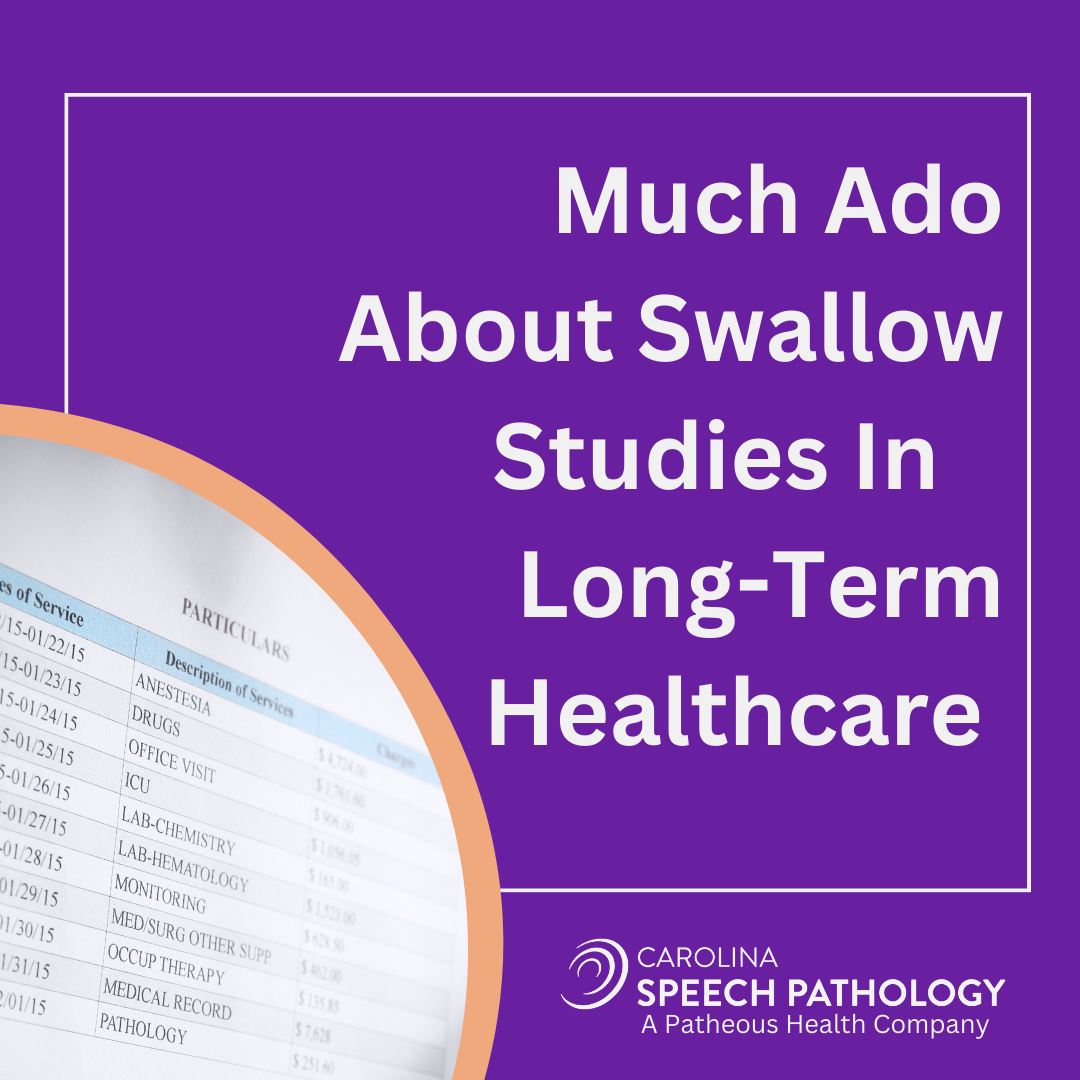Why does it seem like speech-language pathologists (SLPs) face numerous hurdles when it comes to accessing dysphagia imaging in long-term healthcare settings? Why is it a challenge to find mobile dysphagia imaging vendors who can bill Medicare directly? And what exactly does “Consolidated Billing” mean, anyway? Let’s delve into these questions and unravel the complexities surrounding dysphagia imaging billing in the long-term healthcare setting.
Understanding Consolidated Billing
Consolidated billing is the legislative requirement that dictates why swallow study billing and reimbursement work the way that they do in skilled nursing facilities (SNFs). It mandates that all care services provided to Medicare beneficiaries in a SNF are paid using a daily lump sum. Each resident receiving skilled services in a SNF generates a specific daily rate of payment that Medicare pays to the SNF to care for that resident. The daily rate varies from resident to resident based on medical complexity. After the resident is evaluated and their overall condition is coded into a standardized assessment tool called the Minimum Data Set, the facility then receives a daily reimbursement that is used to fund all of the medically necessary services for which the resident qualifies.
Billing Restrictions for Swallow Studies
Since the daily rate includes reimbursement for all therapy services provided to the resident, CMS prohibits swallow study providers from billing therapy codes directly to Medicare. Those codes must be reimbursed using the daily reimbursement rate paid to the SNF. So, how does a swallow study provider receive payment if they aren’t allowed to bill Medicare directly? CMS states that the swallow study vendor must receive payment directly from the facility since the facility is receiving reimbursement to fund therapy services.
Navigating Medicare Part B Billing
What about long-term care residents who are receiving therapy services under Medicare Part B? Some vendors are allowed to bill Medicare directly when the payor source is Medicare Part B; however, therapy services still fall under consolidated billing guidelines, and therefore, a swallow study vendor cannot bill therapy codes to Med B. In this case, the vendor must receive payment for services directly from the facility, and the facility bills out the therapy codes to receive reimbursement.
Seeking Clarity
Feeling overwhelmed with questions? Don’t worry, we’ve got you covered! Join us for a FREE Live Webinar that takes a deep dive into how swallow study billing and reimbursement work in a Skilled Nursing setting. The Webinar also shows how SLPs contribute to cost savings within a Skilled Nursing setting, but only when we can access the services we need.
Webinar Details
We hope that you will be able to join us on March 27th from 3:00 pm-4:30 pm Eastern: “Much Ado about Swallow Studies: The Clinical and Financial Value of Dysphagia Imaging in Skilled Nursing.” The course is offered for .15 CEUs.
Can’t Make It?
If you cannot attend, no problem! We offer the course throughout the year at different times in hopes that all interested people will be able to attend.
About the Author:
Lyndsay Parker, M.S., CCC-SLP, has over 15 years of experience as a medical speech-language pathologist and has worked across a variety of settings, including acute care, inpatient rehab, outpatient, and long-term care. She currently works as a FEES endoscopist, FEES educator, and Manager of Clinical Trainings for Patheous Health. She is a featured presenter for continuing education courses that focus on the financial benefits of dysphagia imaging in skilled nursing facilities as well as topics that discuss end-of-life feeding decisions.

